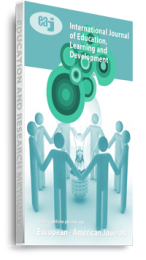The study investigated predictors of students’ attitude towards mathematics in Obio-Akpor Local Government Area of Rivers State Nigeria. Three research questions and three hypotheses guided the study. The study adopted a correlational design. A sample of 350 senior secondary students was drawn from the population through stratified proportionate random sampling technique. The four instruments used for data collection were Mathematics Self-concept Questionnaire (MSCQ), Mathematics Self-Efficacy Scale (MSES), Teachers Competency Questionnaire (TCQ) and Attitude Towards Mathematics Inventory (ATMI) which were validated by experts in measurement and evaluation. The reliability coefficients of MSCQ, MSES, TCQ and ATMI were 0.75, 0.87, 0.80 and 0.85 respectively which were determined through Cronbach alpha technique for internal consistency of the instruments. Linear regression analysis was used to answer the research question while the t-test associated with the regression analysis was used to test the hypotheses at 0.05 alpha level. The results revealed that mathematics self-concept, mathematics self-efficacy and teachers’ competency significantly predicted students’ attitude towards mathematics. These results and their implications were discussed. Among other things, it was recommended that teachers and counsellors should enlighten the students more on mathematics self-concept and self-efficacy which will guide them in having positive attitude towards mathematics. Also mathematics teachers should continue to practice the use of different approaches and techniques in the teaching of mathematics concepts and principles
Keywords: Self-Concept, Self-Efficacy, Students’ attitude, teachers’ competencies and Mathematics

